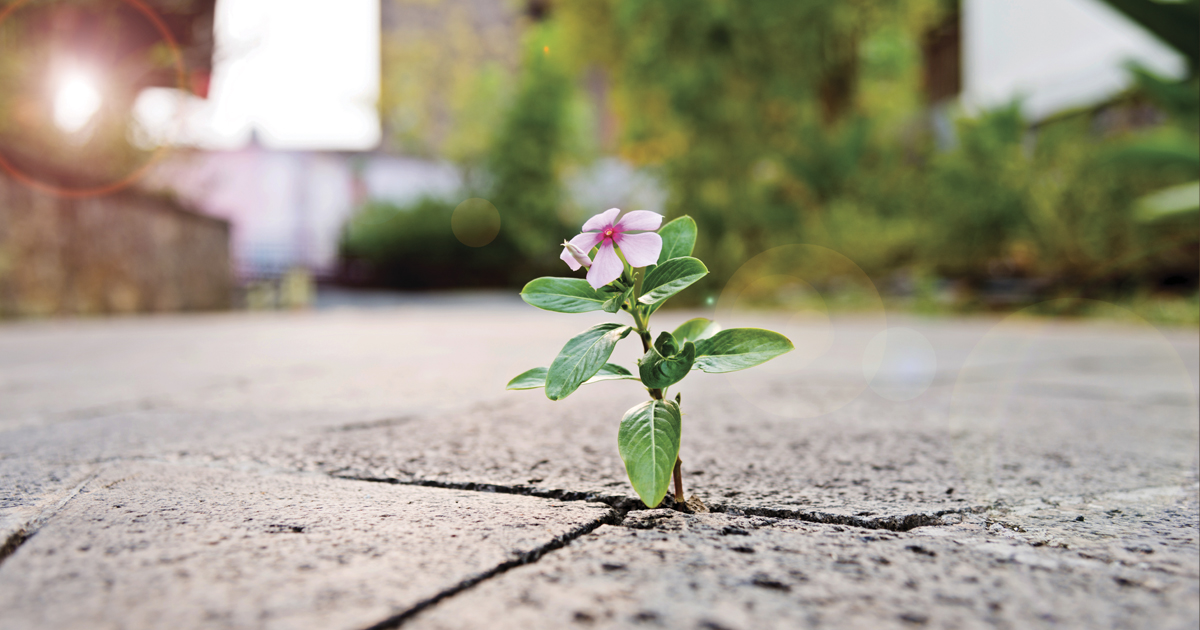It’s March again, and we’ve been living in the midst of a pandemic now for two full years. It was on March 11, 2020, that the World Health Organization declared the novel coronavirus outbreak a global pandemic. In the weeks that followed, the world was plunged into unprecedented lockdown conditions as international borders were closed except for essential travel, corporations shifted to working from home, and schools and worship gatherings moved online.
Two years later, with the continuing effects of the Delta and Omicron variants, it can feel like not much has changed. As I write this on a January morning in Ontario, my children are once again attending class virtually, restaurants are closed to in-person dining, all my meetings are online for the foreseeable future, and there isn’t much we are allowed to do outside our home, aside from going for a walk or to the grocery store.
There’s no denying that COVID-19 has displaced our regular patterns and rhythms. Our eating and shopping habits have shifted, our homes have become much more central to our lives, and travel has become extremely limited. Personally, this is the longest I have stayed in one location, without travelling for work, vacation or to visit family, in my adult life. Writing for Conservatio.org, Michael Di Fuccia muses, “It is ironic that a virus so socially and economically destabilizing has left us more geographically stable than ever before.”
While we may all be feeling a bit weary and fed up with the continuation of these pandemic norms, I wonder if this stability of home and place has, perhaps inadvertently, fostered the spiritual expansion of our souls.
Stability comes from the Latin word stabilis, which means to be still, stand firm or be rooted. Benedictine monks and sisters take a vow of stability when they first join the monastic order, committing themselves to staying in one monastic house with the same people for the rest of their lives. The vow of stability affirms sameness, a willingness to look for God in the constancy of a single place in the rhythm of life, rather than seeking God in ever-changing places and varied routines.
Stability may seem countercultural in a world that encourages us to drop one thing and move on to the next. Don’t like your job? Get a different one! Acquaintance irritating you on Facebook? Unfriend them! Don’t like the preaching at church? Find a new place to worship! We abandon people and places at the slightest sign of discomfort, moving on to the next new thing, often to the detriment of our souls.
In his book Beyond the Walls: Monastic Wisdom for Everyday Life, Paul Wilkes calls stability the “sense of where you are.” He believes that in our disjointed lives and fragmented society, where perseverance and persistence count for little, we desperately need to embrace stability. “What was needed, Benedict taught, was maddeningly simple. It was a commitment to trust in God’s goodness—that he was indeed there, in that very place; and that holiness, happiness and human fulfilment were to be found, not tomorrow or over the hill, but here—today.”
Yes, even now, when we are two years into a global pandemic and still rooted geographically to our homes, we must commit to trusting in God’s goodness, affirming that where we are is where God is for us.
But stability doesn’t necessarily mean that everything stays the same. In many ways, embracing stability means growing where you’re planted, even if you’re not overly pleased with the location.
As COVID-19 restrictions have brought the reality of an ascetic life a lot closer to home for many, perhaps the Benedictine call to stability can encourage us to sit gently with our current experience and allow our souls to rest rather than seeking to fill our days with endless movement. We can continue to revel in the simpler things in life—like growing a potted plant, culturing sourdough or sitting on a park bench listening to birds. We can practise stability through showing contentment and gratitude in our careers, our parenting, our marriages and our homes, as we affirm on a deep level that this is the field where God has planted us and called us to bear fruit.
Allowing ourselves to be still, to stay in one place, even for a few moments, offers us a chance to rest, to breathe and to experience communion with God in the simplicity of our daily lives.
Captain Laura Van Schaick is the divisional secretary for women’s ministries in the Ontario Division.
Photo: baona/iStock via Getty Images Plus
This story is from:










Thank you.